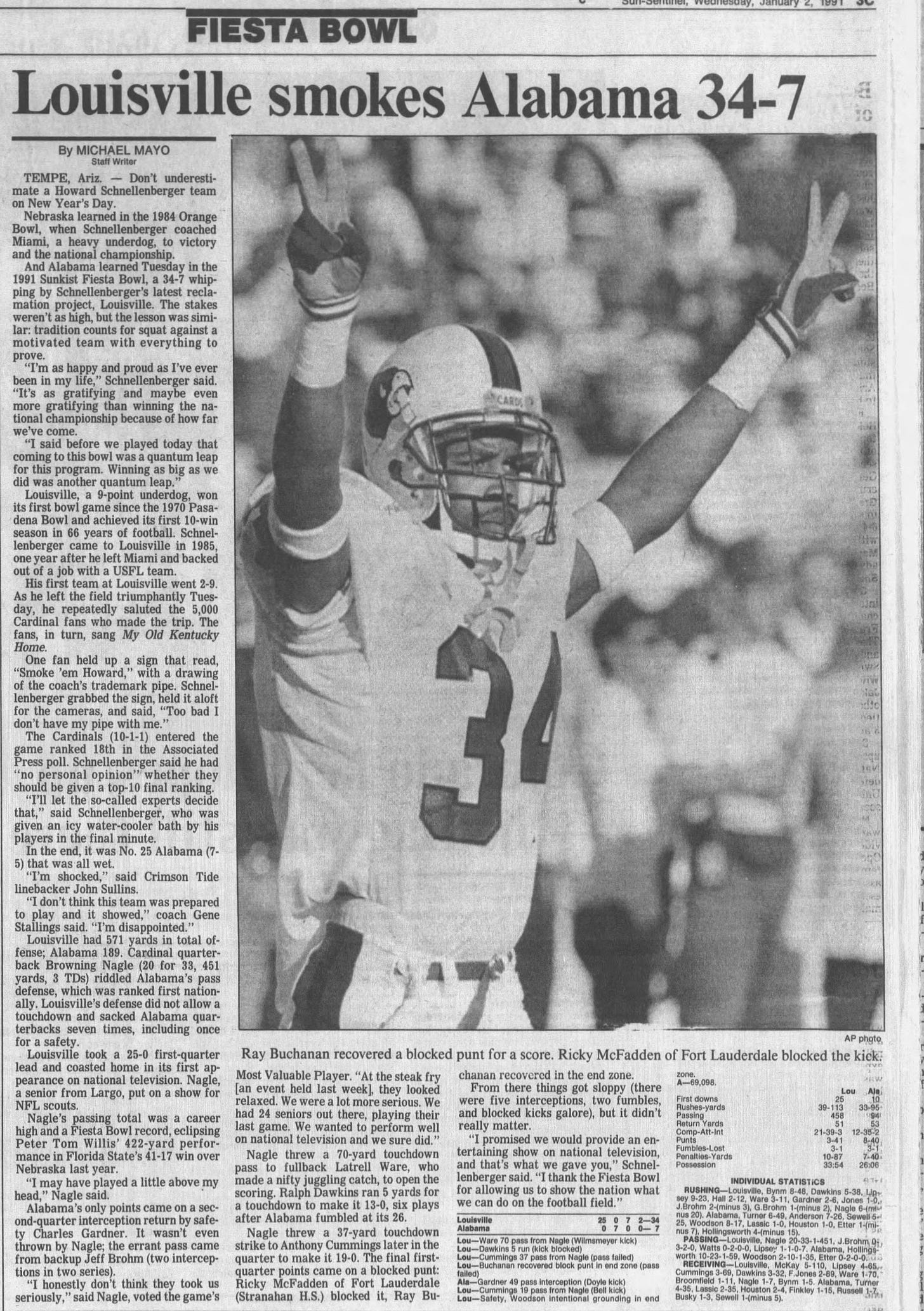Howard Schnellenberger doesn’t need a College Football Hall of Fame induction to be recognized among the all-time greats of the game.
Indeed, anyone with any insight into college football history whatsoever already knows Schellenberger, who died March 27 at age 87, is among the most transformative coaches in the sport’s 151 years despite not meeting the CFHoF’s criteria for induction.
In fact, why Schellenberger fails to meet the Hall’s criteria explains his impact on college football.
Coaching nominees for the Hall must have won a minimum of 60 percent of games in their career. Schnelly’s record was just above .500 at the time of his retirement in 2011, a result of the type of jobs he pursued repeatedly in his career.
He took over fledgling and moribund programs in a tenure that spanned from the ‘70s into the 2010s, along the way building a still-growing Group of Five competitor with a high ceiling; saving a dying team at a basketball school and laying a foundation that led to its membership in a power conference; and Schnellenberger constructed arguably the most influential dynasty in modern college football.
I took a deep-dive into the rise of University of Miami football last summer on Patreon, which gets into the quick transformation of a regularly losing Hurricanes program into a budding national juggernaut in Schnellenberger’s time there.
Without Schnellenberger’s tenure in Coral Gables, which culminated with Miami’s first national championship in 1983, there may very well never have been The U as we know it.
Schnellenberger may not have reaped the rewards that Jimmy Johnson instead garnered at Miami. That’s because Schnelly left south Florida for an even more dire rebuild.
Louisville was growing into one of the most prominent college basketball programs in the sport during the 1980s, winning a national championship under legendary coach Denny Crum in 1980.
Just a year before Crum’s second national title and the unprecedented NCAA Tournament run of freshman “Never Nervous” Pervis Ellison, Schnellenberger dropped into Louisville like the Football Mary Poppins he was to save Cardinals football.
Before his arrival in 1985, Louisville had been to only two bowls in history; one was the Pasadena Bowl, a small-school game that functioned as an appetizer to the Rose Bowl Game. The Pasadena Bowl had, in fact, launched as the Junior Rose Bowl and showcased junior colleges before becoming a College Division contest.
Commensurate with the rise of Louisville basketball, Cardinals football became increasingly desperate. And Schnellenberger endured some hard knocks his first few years, dinging his Hall of Fame candidacy.
But his worthiness for the Hall may not be more evident than in Louisville’s 1990 season. On a timeline almost identical to his turnaround of Miami into a national champion, Schnellenberger took the previously gasping-for-air Louisville program to the Fiesta Bowl.
In Tempe, Louisville gave Alabama a beating that put Cardinals football on the map in an indelible way. Much like Utah’s rout of the Crimson Tide in the 2009 Sugar Bowl helped the Utes to the Pac-10, one could debate that the road leading Louisville to the ACC two decades later began formally with the 1991 Fiesta Bowl
But the job that perhaps truly cements Schnellenberger as one of the very best ever to do it was his last. At Miami and Louisville, Schnelly rebuilt programs.
At FAU, he constructed one from the ground floor.
Schnellenberger was FAU’s only coach for its first 11 seasons, steadily shaping a concept of winning football into reality. He coached the Owls in their first game in 2001, led them to their first bowl games in consecutive seasons, 2007 and 2008.
And while the terms build and construct in the coaching sense are metaphoric, Schnellenberger’s efforts at FAU quite literally established the football team’s home.
FAU Stadium opened in 2011, during Schnellenberger’s final season. The same stadium in which dominant Owls teams in 2017 and 2019 garnered national attention and helped Lane Kiffin return to the SEC is as close to literally being The House Howard Schnellenberger built as possible.
The field at FAU Stadium bears Schnellenberger’s name, a worthy bit of recognition for the coach’s contributions. His significance to the existence of FAU football reflects how Schnellenberger never needed the Hall of Fame to be recognized as an all-timer.
Still, the College Football Hall of Fame should make an exception to its arbitrary win-percentage rule and induct Howard Schnellenberger. It’s unfortunate he could never accept a nomination and give a rousing speech, but becoming the only coach inducted with a record under the mark is an honor befitting his profound influence.




